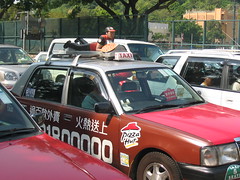Date: 10/2009 SA10-09 – SENIOR ADVISORY
MEDICARE ADVANTAGE PLANS & MEDICARE PRESCRIPTION DRUG PROGRAM
This advisory was prepared by the California Department of Insurance to help seniors protect themselves against predatory insurance sales practices during open enrollment for Medicare Advantage plans and the Medicare Prescription Drug Program. Insurance is a difficult and challenging subject for everyone regardless of age, financial status, education, and experience. To help protect yourself from aggressive or deceptive sales practices, please consider these tips:
- # Make Sure They’re Licensed: Not all people marketing Medicare
- Advantage plans are insurance agents. If the person you are dealing with claims to be an insurance agent, contact the California Department of Insurance or visit www.insurance.ca.gov to verify license status. Insurance agents are required to print their license number on all business cards, quotations, and advertisements. Also, verify that the insurance company is licensed to do business in California.
- # Cold Calls Prohibited: Federal regulations prohibit “cold calls”
- which may take the form of uninvited sales calls, door-to-door visits, unsolicited emails, telephone calls or any other type of sales contact without your express invitation.
- # Be Stingy with Personal Information: Never give out personal
- information such as your Social Security number, bank account numbers, or credit card information over the phone. Verify that the person you are dealing with has proper authority to act on behalf of the plan before you provide your Medicare number. This is a good time to seek assistance from a trusted relative, friend or advisor.
- # Medicare Has No Official Sales Reps: Be wary of any salesperson who
- says that he/she is a Medicare representative. Medicare does not send “representatives” to solicit your business.
- # No Marketing in Educational or Care Settings: Federal regulations
- prohibit the marketing of Medicare products in places where health care is delivered (such as a doctor’s office, clinic, or pharmacy counter) or at an educational event.
- # No Such Thing as a Free Lunch: Federal regulations prohibit offers
- of free meals for listening to a sales presentation or for signing up in a particular plan.
- # Don’t Let Them Oversell You: Federal regulations prohibit selling
- additional insurance products during any sales or marketing presentation for a Medicare Advantage or Prescription Drug Plan.
- # Read and Understand the Plan: Be sure that the plan that you choose
- matches your needs and that you can continue to see your current health care providers if you wish. It may be very difficult or even impossible to “undo” your selection later.
- # You have rights! Contact the California Department of Insurance at
- 1-800-927-HELP (4357) or visit our website at www.insurance.ca.gov, if you have any questions about an insurance offer, scheme or agent.
Additional Info: Information about Medicare is available at 1-800-MEDICARE (1-800-633-4227) or www.medicare.gov or the California Department of Aging Health Insurance Counseling and Advocacy Program (HICAP) at 1-800-434-0222 may be able to assist you. Revised 10/14/09


